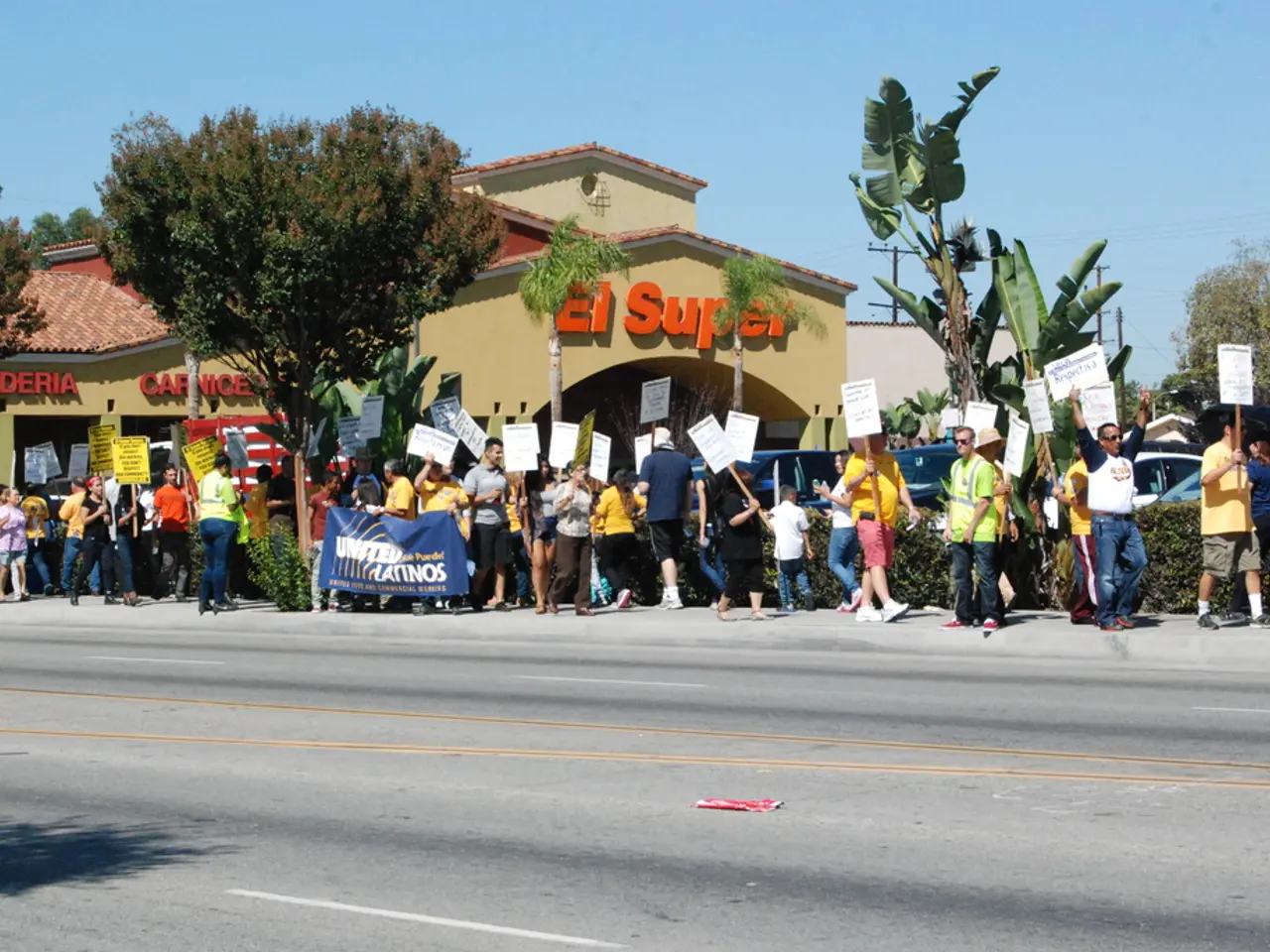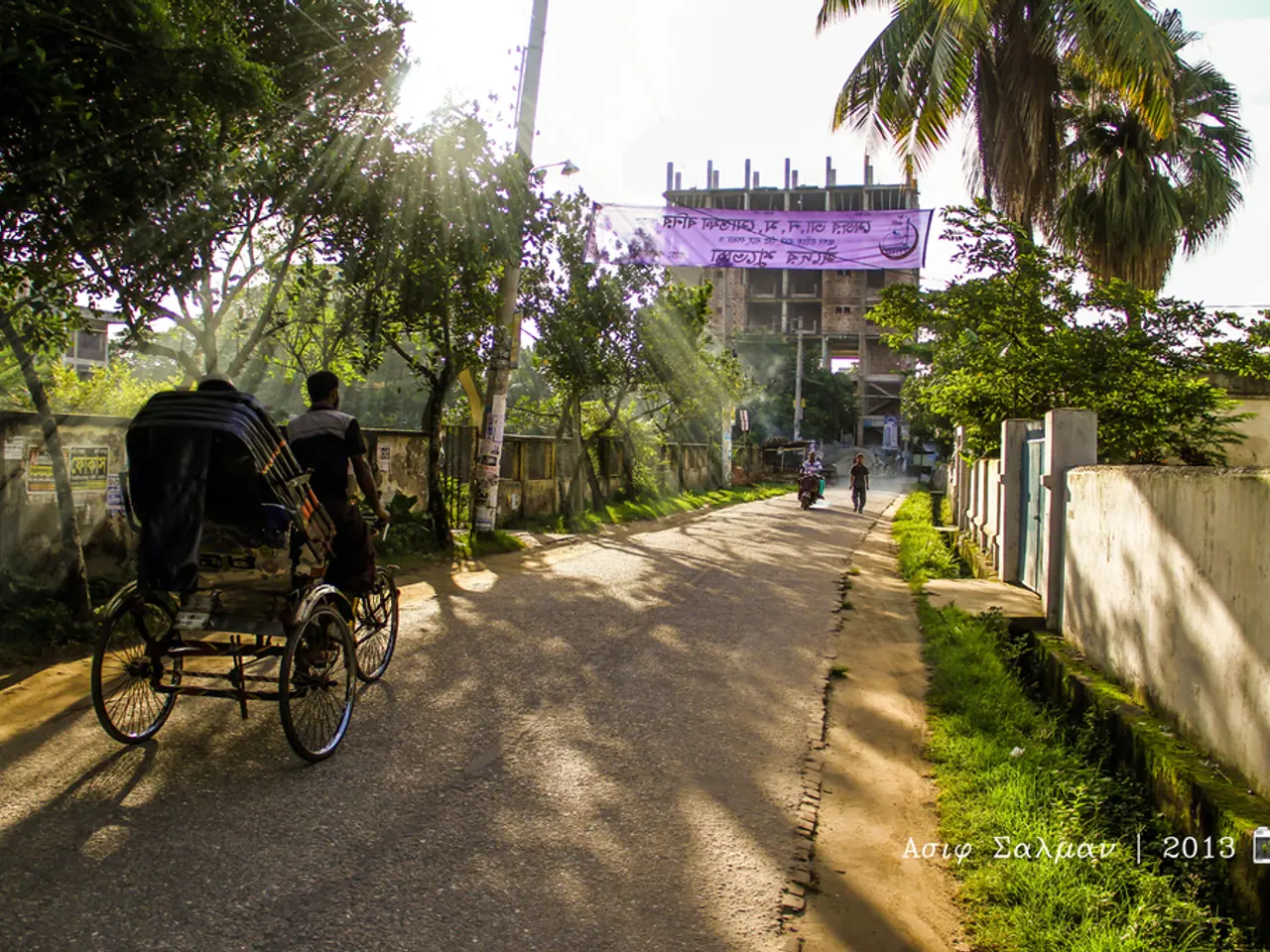Work conditions in Hong Kong remain, despite the 'extreme' label, not leading to a halt in operations, according to Eric Chan's statements.
Hong Kong's Extreme Weather Policy Under Scrutiny Amidst Record-Breaking Downpours
Hong Kong's policy on work suspension during extreme weather conditions has come under scrutiny this week, following a series of record-breaking downpours and subsequent flash floods and landslides.
Eric Chan Kwok-ki, the No 2 official in Hong Kong and the chair of the steering committee on handling extreme weather, has faced criticism for not convening a meeting of the committee. Despite the city recording the highest number of black rainstorm signals for a single year, with the Hong Kong Observatory issuing four black rainstorm warnings within eight days, Chan maintains that the emergency coordination command center was activated to manage the situation.
However, the government's approach focuses on emergency response, rapid recovery from flooding and hazards, and coordination rather than mandatory work suspension. The "extreme conditions" announcement does not equate to a suspension of work, with employers expected to assess risks and decide on work arrangements, prioritizing employee safety while considering operational needs.
Indoor employees generally continue working unless it is unsafe, while outdoor workers should suspend duties and seek shelter when rainstorm warnings are in force. If a Black Rainstorm Warning persists after office hours, employees should stay in safe locations. When an extreme conditions announcement is made, employees are advised not to commute unnecessarily, and employers should provide safe shelter or release staff early if workplaces are dangerous.
Despite these advisories, the recent severe weather events, such as the multiple Black Rainstorm Warnings in early August 2025, have strained this policy. During the August floods, many public services like schools, hospitals, courts, and post offices closed temporarily due to extreme rain, although some essential operations such as emergency hospital wards and the stock exchange continued.
In the case of Tuesday's record-breaking downpours, no specific order was given by the government to prevent workers from commuting ahead of the extreme weather. The highest-level black rainstorm warning remained in force for over 11 hours, and all government departments provided all-out support to address the devastation caused by the extreme weather.
Chan stated that the members of the public were well protected, but criticism persists over the lack of a formal work suspension order from the government. The steering committee on handling extreme weather, chaired by Chan, is responsible for addressing such situations in Hong Kong.
In summary, work stoppage during extreme weather in Hong Kong is not mandated by government announcements but subject to employer discretion based on safety and operational considerations. Recent severe weather has tested this system with significant disruption but without formal work suspension orders from the government.
- The lack of mandatory work suspension during extreme weather in Hong Kong has been a topic of criticism, as people question why no formal orders were given during Tuesday's record-breaking downpours.
- While the government's approach focuses on emergency response and rapid recovery, the policy regarding work continuation during extreme weather conditions has been under scrutiny, particularly when compared to general news about work suspensions in other regions encountering similar extreme weather events.








